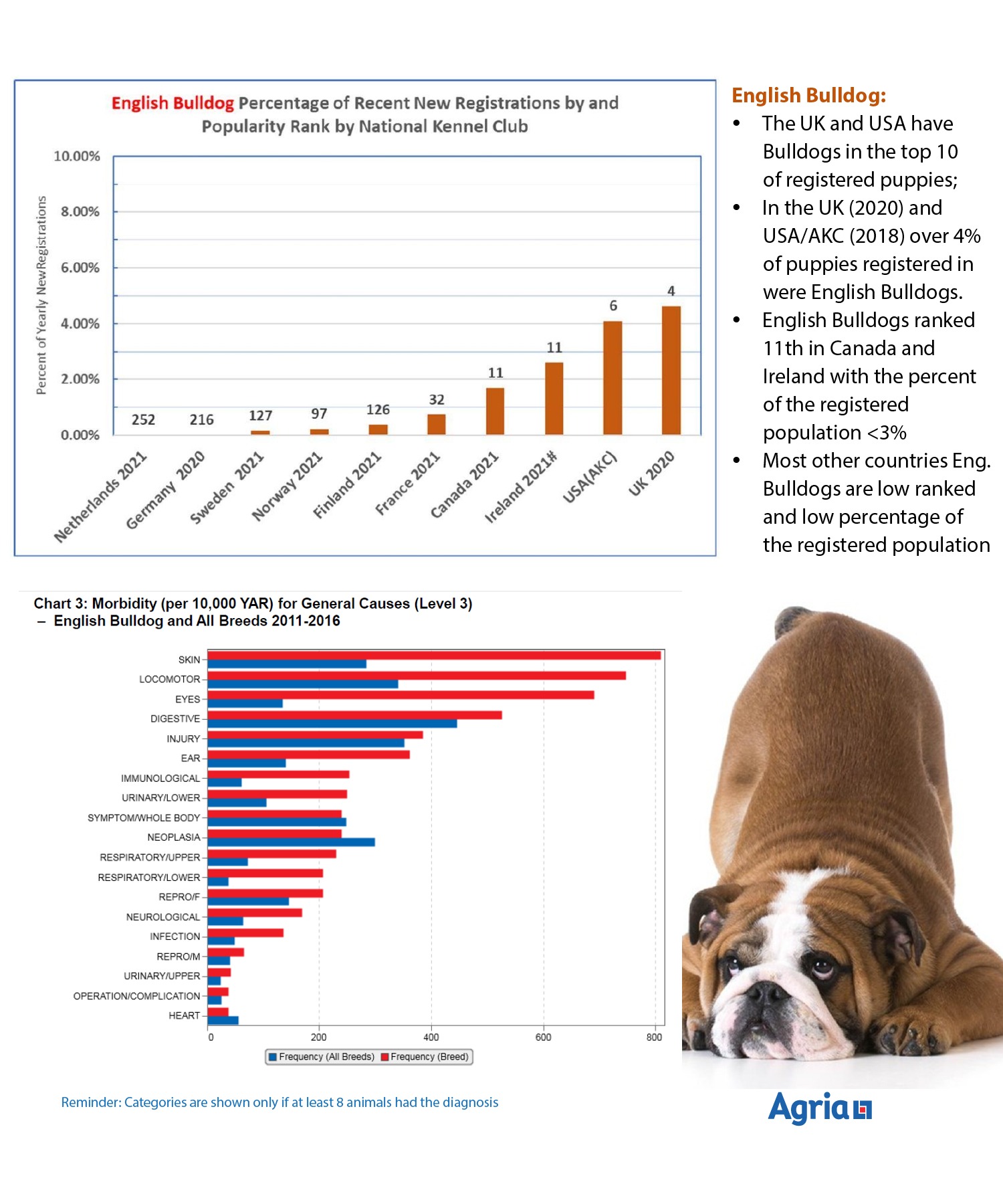no-repeat;left top;;
auto
Staying up to date with common, let alone rare, health risks in susceptible dog breeds can be difficult. In this regular feature, our Educational Partner, the International Partnership for Dogs (IPFD), signposts resources on a particular breed and highlights breed-specific diseases
no-repeat;left top;;
auto
no-repeat;left top;;
auto
Meet the Bulldog – Update Your Knowledge!

The image at the top of this article shows the progression of change in Bulldog skulls from them being an active ‘working’ dog (bull baiting) to being a companion animal, demonstrating that human-driven selection, together with other changes to conformation have resulted in many health issues – eye and skin problems, spinal abnormalities, hip dysplasia, and other issues in addition to breathing problems. Estimates are that 50% are dead before they reach 7.5 years. In addition to considering the health problems of this breed, veterinarians must consider their own role in the wider issue of challenges for brachycephalic dogs (1).
no-repeat;left top;;
auto
IPFD has published “Get a GRIHP! on the English Bulldog” (2) as an in depth examination of health and well-being of this breed. As you will see there and, in the Figure, below – Bulldogs in several countries, especially the UK and the USA, but also Canada and Ireland, are very popular breeds; in all countries, these dogs show a markedly increased risk of many health conditions, mainly related to aspects of their conformation. In some countries, popularity within kennel club populations is waning (3), and in some – eg Finland – breeders are working toward significant changes through a mandatory health program.
no-repeat;left top;;
auto

full
disable
center
Challenges for the dogs themselves, for the future of the breed (eg veterinary assistance in conception and whelping), and how to communicate with very loving, attached owners are all part of our obligation to Bulldogs. Moral and ethical, as well as medical/practical issues for veterinarians arise and we encourage veterinarians to read the links in this article as well as the recent text on Brachycephalics (4).
no-repeat;left top;;
auto

full
https://wsava.org/wp-content/uploads/2022/05/english-Bulldog-WSAVA-chart-image.jpg
disable
center
References
- How do Veterinarians Navigate the Complexities of Health, Welfare, and Owner Attachment? Link to a talk by Dr. Bonnett for the Sir James Dunn Animal Welfare Centre (SJDAWC) series on Animal Welfare Concerns with Dog Breeding. https://dogwellnet.com/blogs/entry/235-how-do-veterinarians-navigate-the-complexities-of-health-welfare-and-owner-attachment/
- Get a GRIHP! on the English Bulldog – https://dogwellnet.com/content/health-and-breeding/breeds/breed-specific-health-reports/get-a-grihp-on-the-english-bulldog-r770/
- How many are there? French Bulldogs, English Bulldogs and Pugs in Kennel Club Registries from 10 Countries https://dogwellnet.com/content/international-actions/extremes-of-conformation-brachycephalics/how-many-are-there-french-bulldogs-english-bulldogs-and-pugs-in-kennel-club-registries-from-10-countries-r771/
- Veterinarians and Brachycephalic Dogs – Ethics and Reality – with links to the text Health and Welfare of Brachycephalic (Flat-faced) Companion Animals – A Complete Guide for Veterinary and Animal Professionals https://dogwellnet.com/blogs/entry/205-veterinarians-and-brachycephalic-dogs-ethics-and-reality/
no-repeat;left top;;
auto
The International Partnership for Dogs (IPFD) is a non-profit working for dog health, well-being, and welfare. This article has been prepared by its Veterinary Science Officer, Dr Brenda Bonnett, DVM PhD.
no-repeat;left top;;
auto

full
disable
center
